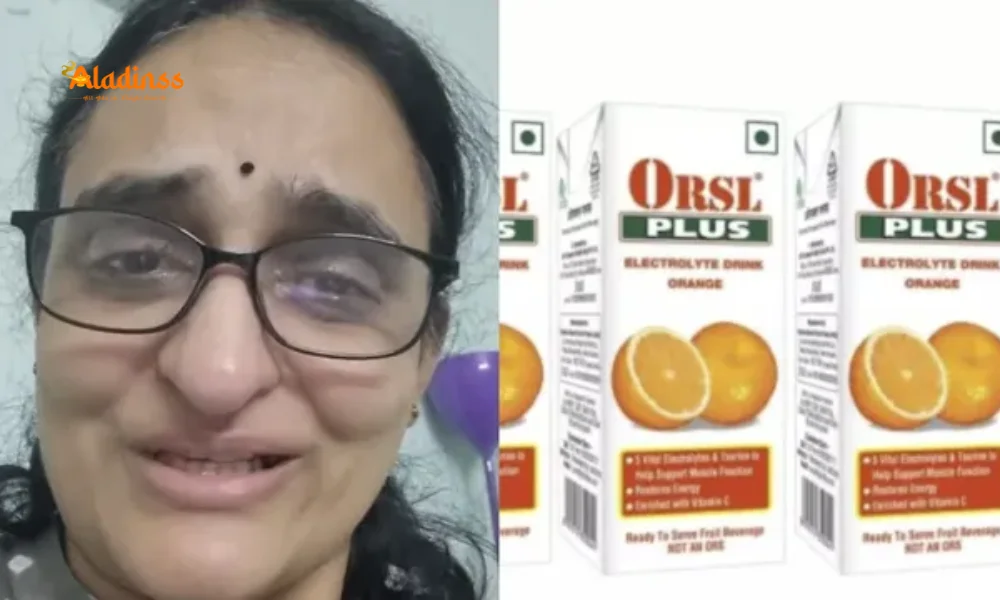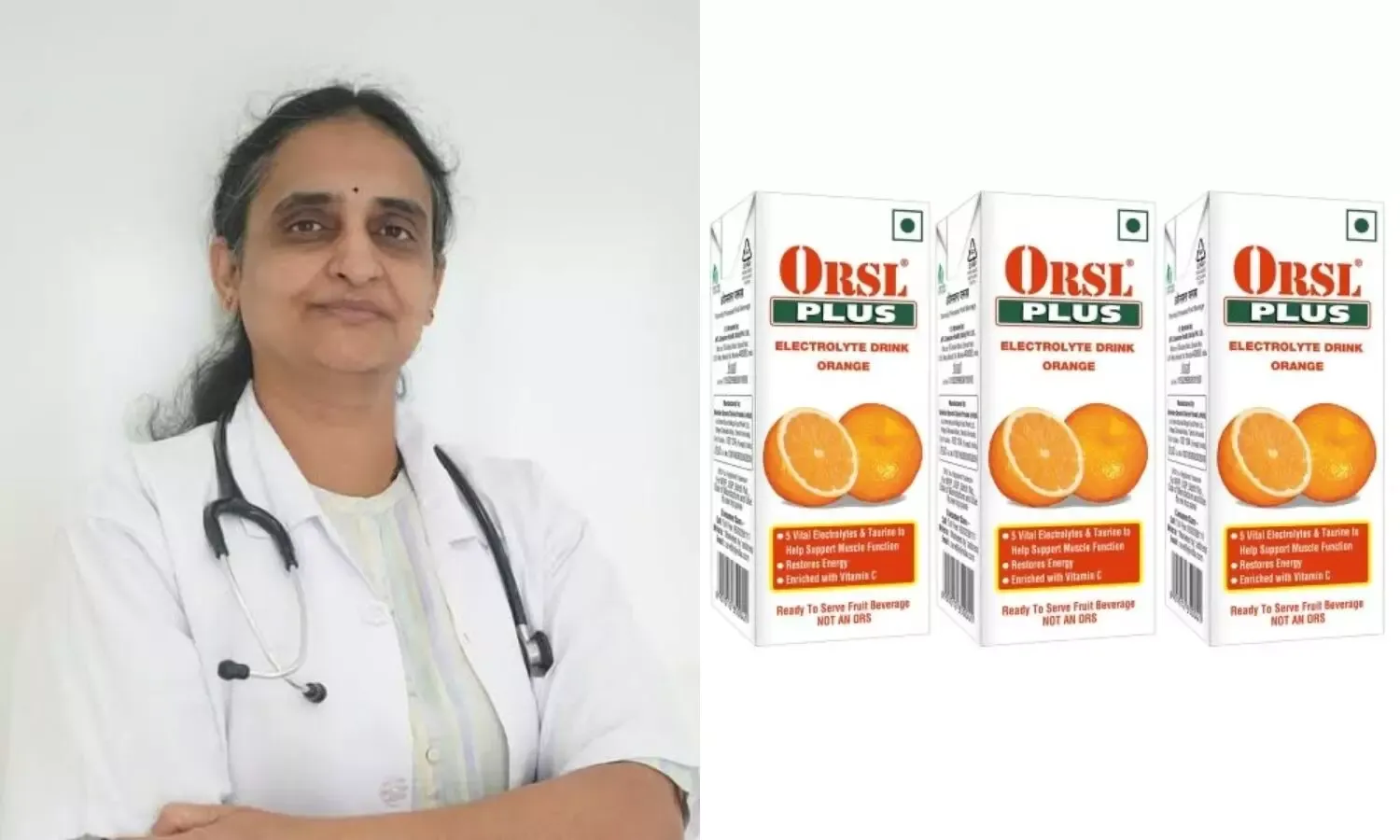FSSAI Issues Ban on ‘ORS’ Labels After Medical Expert Raises Concerns

Hyderabad Doctor’s 8-Year Fight Ends Misleading ‘ORS’ Labels
In a landmark victory for consumer safety, the Food Safety and Standards Authority of India (FSSAI) has banned the use of the term “ORS” (Oral Rehydration Solution) on food product labels and advertisements, effective October 14, 2025. The decision, driven by an eight-year campaign led by Hyderabad-based pediatrician Dr. Sivaranjani Santosh, aims to curb misleading marketing by companies selling sugar-laden energy drinks as ORS. This move protects consumers from deceptive labels that could worsen health conditions like diarrhea.
The FSSAI’s directive, issued under the Food Safety and Standards Act, 2006, prohibits the use of “ORS” in product names, trademarks, or with any prefix/suffix, declaring such practices as misbranding. The order reverses earlier permissions from 2022 and 2024, which allowed the term with disclaimers, after Dr. Santosh’s relentless advocacy highlighted the dangers of these drinks. The ban is a significant step toward ensuring accurate labeling and safeguarding public health in India.

Details of the FSSAI Directive
The FSSAI’s latest order, issued on October 14, 2025, marks a significant shift in food labeling regulations. It explicitly bans the use of the term “ORS” on any food product, whether as a standalone word, part of a trademark, or combined with prefixes or suffixes. The regulator deemed such labeling practices as “false, deceptive, ambiguous, and erroneous,” violating the Food Safety and Standards Act, 2006. The directive mandates all Food Business Operators (FBOs) to immediately remove “ORS” from their products to comply with labeling and advertisement requirements.
Previously, FSSAI orders from July 2022 and February 2024 permitted the use of “ORS” with a disclaimer stating that the product was not a WHO-recommended ORS formula. However, the regulator now acknowledges that such disclaimers were insufficient to prevent consumer confusion, especially given the critical role of ORS in treating dehydration from diarrhea. The ban reinforces an earlier directive from April 8, 2022, which addressed misleading advertisements of ORS substitute products, ensuring stricter enforcement across India.
Dr. Sivaranjani Santosh’s Crusade
The FSSAI’s decision is a direct result of Dr. Sivaranjani Santosh’s eight-year battle against deceptive marketing practices. As a pediatrician based in Hyderabad, Dr. Santosh witnessed the harmful effects of sugar-rich energy drinks labeled as “ORS,” which misled consumers into believing they were safe for treating dehydration. She emphasized that these drinks, far from aiding recovery, could exacerbate diarrhea, potentially leading to severe health consequences, especially in children.
In an interview with ANI, Dr. Santosh described the FSSAI’s directive as a “huge relief,” underscoring the life-saving importance of genuine ORS, often hailed as a “wonder drug” for its ability to rehydrate and save lives. She criticized companies for exploiting the term “ORS” to market high-sugar drinks, which have been sold in pharmacies, hospitals, and schools for over a decade. Her campaign highlighted the alarming statistic that 13% of children under five in India die due to diarrhea, a condition worsened by these mislabeled products.
The Dangers of Misleading Labels
Genuine ORS, as recommended by the World Health Organization (WHO), is a carefully formulated solution of salts and glucose designed to restore fluids lost during diarrhea. However, many energy drinks marketed as “ORS” contain high levels of sugar, which can worsen dehydration and lead to serious health risks, particularly in vulnerable populations like children and the elderly. Dr. Santosh’s advocacy exposed how these products were misleading consumers, who often trusted the “ORS” label without reading fine-print disclaimers.
The misuse of the term “ORS” has had far-reaching consequences, with mislabeled drinks being sold widely across India. Dr. Santosh pointed out that even literate consumers rarely read disclaimers, let alone those with limited literacy, making the practice particularly exploitative. The FSSAI’s ban aims to eliminate this confusion, ensuring that only WHO-compliant ORS products are marketed for medical use, thereby protecting public health and preventing potential fatalities.
Challenges Faced by Dr. Santosh
Dr. Santosh’s journey was fraught with challenges, including opposition from her family and pressure from her professional community. She faced significant hurdles in filing public interest litigation against both the government and private companies, naming them as respondents in her legal battle. Despite personal and professional risks, she remained steadfast, driven by a sense of purpose. “I was meant to do this,” she told ANI, reflecting on the tensions she endured while advocating for change.
Her campaign involved raising awareness about the dangers of mislabeled ORS products, engaging with policymakers, and challenging powerful corporations. The resistance she faced underscores the difficulty of combating entrenched marketing practices in the food and beverage industry. Yet, her persistence paid off, culminating in the FSSAI’s comprehensive ban, which applies to all food products nationwide, ensuring a unified approach to consumer protection.
Impact on Public Health
The FSSAI’s directive is expected to have a profound impact on public health in India, where diarrhea remains a leading cause of mortality among children under five. By removing the “ORS” label from non-compliant products, the regulator aims to prevent consumers from mistakenly using high-sugar drinks to treat dehydration. This is particularly critical in rural areas, where access to proper medical guidance may be limited, and reliance on trusted labels is high.
The ban also sets a precedent for stricter regulation of food and beverage marketing in India. It highlights the importance of accurate labeling and the role of advocacy in driving policy change. Dr. Santosh’s efforts have not only protected consumers but also raised awareness about the broader issue of misleading advertisements, encouraging other activists to challenge unethical practices in the industry.
Enforcement and Compliance
The FSSAI has directed all state and Union Territory food safety commissioners, as well as central licensing authorities, to ensure compliance with the new directive. Food Business Operators must immediately remove the term “ORS” from their products, with non-compliance punishable under the Food Safety and Standards Act, 2006. The regulator has emphasized rigorous enforcement to prevent further violations, signaling a zero-tolerance approach to misleading marketing.
The directive also reinforces existing regulations on misleading advertisements, as outlined in the April 2022 order. Companies found violating the ban could face penalties, including fines and legal action, ensuring accountability in the food industry. The FSSAI’s proactive stance is expected to encourage greater transparency and protect consumers from deceptive practices that jeopardize their health.
Looking Ahead
Dr. Santosh’s campaign has set a powerful example of how individual advocacy can drive systemic change. Her eight-year fight has not only led to the FSSAI’s ban but also sparked a broader conversation about consumer rights and corporate accountability. As India continues to strengthen its food safety regulations, her efforts will likely inspire further reforms to protect public health.
The FSSAI’s ban on “ORS” labels is a testament to the impact of persistent advocacy in safeguarding public health. With stricter regulations now in place, consumers can make informed choices without the risk of deceptive marketing. Dr. Santosh’s legacy serves as a reminder of the power of determination in addressing critical issues, ensuring that life-saving solutions like ORS are protected from misuse.
Comment / Reply From
No comments yet. Be the first to comment!











